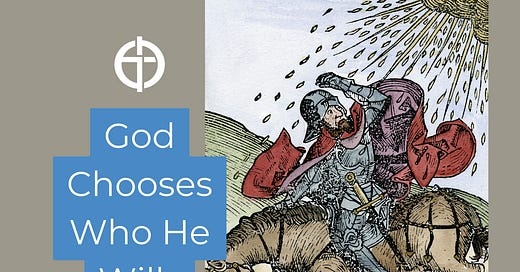(Feast of the Conversion of St. Paul - January 25)
(Memorial of Sts. Timothy and Titus - January 26)
The next two days celebrate the Feast of the Conversion of St. Paul (1/25) and the Memorial of Saints Timothy and Titus (1/26). Timothy and Titus both became bishops and suffered for the Gospel. St. Timothy was a fellow apostle with St. Paul and one of his converts. He was with Paul at the founding of the Church in Corinth. He was with Paul in Rome during his house arrest and then he himself was in prison.
There is a relatively passing line in Sacred Scripture which gives us some insight into St. Timothy. Paul tells him: “Stop drinking only water, but have a little wine for the sake of your stomach and your frequent illnesses” (1 Timothy 5:23). This seems to suggest that Timothy had stomach ailments, but it can be inferred that it was, at least in part, because he was timid.
St. Titus was a convert of Paul as well and was his secretary and interpreter. He was with Paul at the Council of Jerusalem. Unlike many of the earliest bishops, Titus was a Greek gentile. He was entrusted by Paul with the delivery of severe letters as well as the Second Letter to the Corinthians. Titus was made the Bishop of the island of Crete which shows the esteem that St. Paul had for him (which St. John Chrysostom would later note).
So, we have the young and timid Timothy and the erudite and courageous Titus paired together, both serving St. Paul and, ultimately, the Gospel of Jesus Christ. These two great saints and bishops show us that God chooses who He wills. God’s designs are inscrutable, but what is sure is that all are called to a purpose. All are given a mission, a vocation, by God. But we are never alone. We need community; we need our brothers and sisters in Christ to fulfill our vocation. But in order to fulfill our vocation, purpose, and mission, we must listen to the voice of God.
This reality of hearing and heeding the voice of the Lord is no more clear than the conversion of St. Paul himself. Nor is the reality that God chooses who He wills more clearly displayed. By his own words, St. Paul says that before his conversion he persecuted the early Christians “beyond measure.” Not only did he persecute the Christians, he also persecuted the anti-Temple Hellenistic Jews who were returning from the diaspora.
And, yet, on the road to Damascus, the Lord made His choice known. He chose Saul. A note on the name, by the way. Many people wrongly assume that Paul changed his name after his conversion. He “went from Saul to Paul.” This is a nice idea, but it has no basis in reality. Saul is his Hebrew name. And Paulos is his Greek name. That is all there is to that.
Anyway, the Lord chose Saul. Paul falls to the ground after having a vision of the ascended Jesus, he is struck blind for three days, and hears the words: “Saul, Saul, why do you persecute me?” Paul asks Him: “Who are you, Lord?” And Jesus replies: “I am Jesus, whom you are persecuting.” In this passage of Acts Chapter 9, we read that Paul had to be led blind to Damascus by the hand. He ate no food and drank no water for three days. Then, Ananais arrives and lays his hands on him saying: “Brother Saul, the Lord Jesus who appeared to you on the road by which you came has sent me so that you may regain your sight and be filled with the Holy Spirit.” (Acts 9:17) Paul then arose, able to see again, and was baptized. Then, before going out, we infer from the Letter to the Galatians, that Saul spent three years in Arabia preparing for ministry in studying the Scriptures and (possibly, though this is speculation) to learn from Jesus Himself as the other Apostles did.
What we can glean from St. Paul, St. Timothy, and St. Titus is that God chooses whom He wills. We, likewise, are called. We all have a particular vocation - a state in life - by which to become saints and to help others, by God’s grace, to be saints. Do you know your vocation? Are you actively seeking the will of God? Do you desire His heart?
Sts. Paul, Titus, and Timothy, pray for us.





A priest once told me to remember that when you meet someone new you may be meeting a saint.